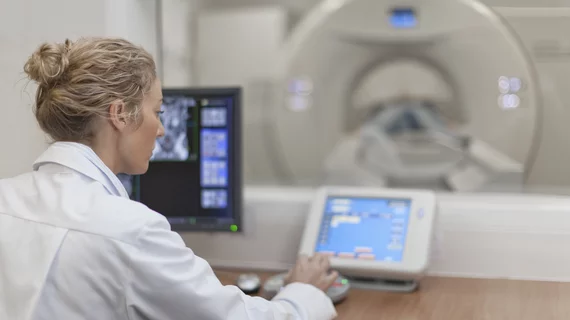Nearly half of patients surveyed believe MRI exposes individuals to ionizing radiation
Nearly half of patients (47%) mistakenly believe that MRI exposes individuals to ionizing radiation, according to new survey data shared Wednesday.
Another 36% think that both magnetic resonance imaging and computed tomography use the same technology to create diagnostic images. And about 1 in 5 individuals (or 18%) contend that MRI exams can cause infertility.
The findings were more pronounced among younger patients (ages 18 to 34), with 49% believing MRI delivers radiation and 23% thinking it causes infertility. Radiology provider Whole Body MRI conducted the poll in December, reaching more than 1,500 Canadians who are members of the Angus Reid Forum, an online public opinion community.
“Educating Canadians on the benefits and risks is critical in ensuring that patients feel at ease when undergoing MRI scans for cancer and other diseases,” Nirav Patel, CEO and chief of radiology at Whole Body MRI, said in a Jan. 24 announcement.
The company’s exams are performed by GNMI MRI & CT, “the only medical imaging clinics in Ontario” that provide such whole-body scans. It’s another in the growing list of providers offering MRIs for symptom-free patients seeking to catch diseases before they arise. Others include startups Ezra and Prenuvo, with celebrity Kim Kardashian promoting the latter’s $2,500 service on social media. Whole Body MRI charges about $2,200 (USD) for the service, according to its website.
Radiologists have spoken against this practice, worried it will lead to unnecessary workups and other low-value healthcare services. Physician Dhruv Khullar, MD, recently wrote a lengthy essay about this trend for the New Yorker.

